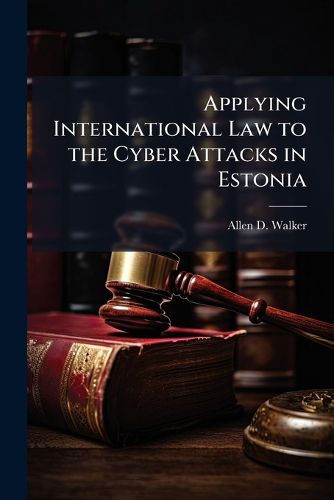Readings Newsletter
Become a Readings Member to make your shopping experience even easier.
Sign in or sign up for free!
You’re not far away from qualifying for FREE standard shipping within Australia
You’ve qualified for FREE standard shipping within Australia
The cart is loading…






Conflict in Cyberspace: Recommendations for the US Imagine the nation's electrical grid shutting down, major interruptions of electronic trading on Wall Street, or the air traffic control system going off-line during a stormy night. These scenarios are all possible not only by physically attacking the infrastructure, but also through hackers working anywhere in the world. It might seem far-fetched that these would actually happen on such a large scale but it happened for the first time in May 2007 to Estonia. Estonia is one of the most wired countries in the world. Over 97% of banking, voting for national elections and much of the countries telecommunications rides on the internet. In May 2007, unknown hackers launched an attack on Estonia that directly targeted the government and over 200 businesses causing considerable nuisance to daily government operations and millions of dollars of lost revenue to businesses.
This work has been selected by scholars as being culturally important, and is part of the knowledge base of civilization as we know it. This work was reproduced from the original artifact, and remains as true to the original work as possible. Therefore, you will see the original copyright references, library stamps (as most of these works have been housed in our most important libraries around the world), and other notations in the work.
This work is in the public domain in the United States of America, and possibly other nations. Within the United States, you may freely copy and distribute this work, as no entity (individual or corporate) has a copyright on the body of the work.
As a reproduction of a historical artifact, this work may contain missing or blurred pages, poor pictures, errant marks, etc. Scholars believe, and we concur, that this work is important enough to be preserved, reproduced, and made generally available to the public. We appreciate your support of the preservation process, and thank you for being an important part of keeping this knowledge alive and relevant.
$9.00 standard shipping within Australia
FREE standard shipping within Australia for orders over $100.00
Express & International shipping calculated at checkout
Stock availability can be subject to change without notice. We recommend calling the shop or contacting our online team to check availability of low stock items. Please see our Shopping Online page for more details.
Conflict in Cyberspace: Recommendations for the US Imagine the nation's electrical grid shutting down, major interruptions of electronic trading on Wall Street, or the air traffic control system going off-line during a stormy night. These scenarios are all possible not only by physically attacking the infrastructure, but also through hackers working anywhere in the world. It might seem far-fetched that these would actually happen on such a large scale but it happened for the first time in May 2007 to Estonia. Estonia is one of the most wired countries in the world. Over 97% of banking, voting for national elections and much of the countries telecommunications rides on the internet. In May 2007, unknown hackers launched an attack on Estonia that directly targeted the government and over 200 businesses causing considerable nuisance to daily government operations and millions of dollars of lost revenue to businesses.
This work has been selected by scholars as being culturally important, and is part of the knowledge base of civilization as we know it. This work was reproduced from the original artifact, and remains as true to the original work as possible. Therefore, you will see the original copyright references, library stamps (as most of these works have been housed in our most important libraries around the world), and other notations in the work.
This work is in the public domain in the United States of America, and possibly other nations. Within the United States, you may freely copy and distribute this work, as no entity (individual or corporate) has a copyright on the body of the work.
As a reproduction of a historical artifact, this work may contain missing or blurred pages, poor pictures, errant marks, etc. Scholars believe, and we concur, that this work is important enough to be preserved, reproduced, and made generally available to the public. We appreciate your support of the preservation process, and thank you for being an important part of keeping this knowledge alive and relevant.